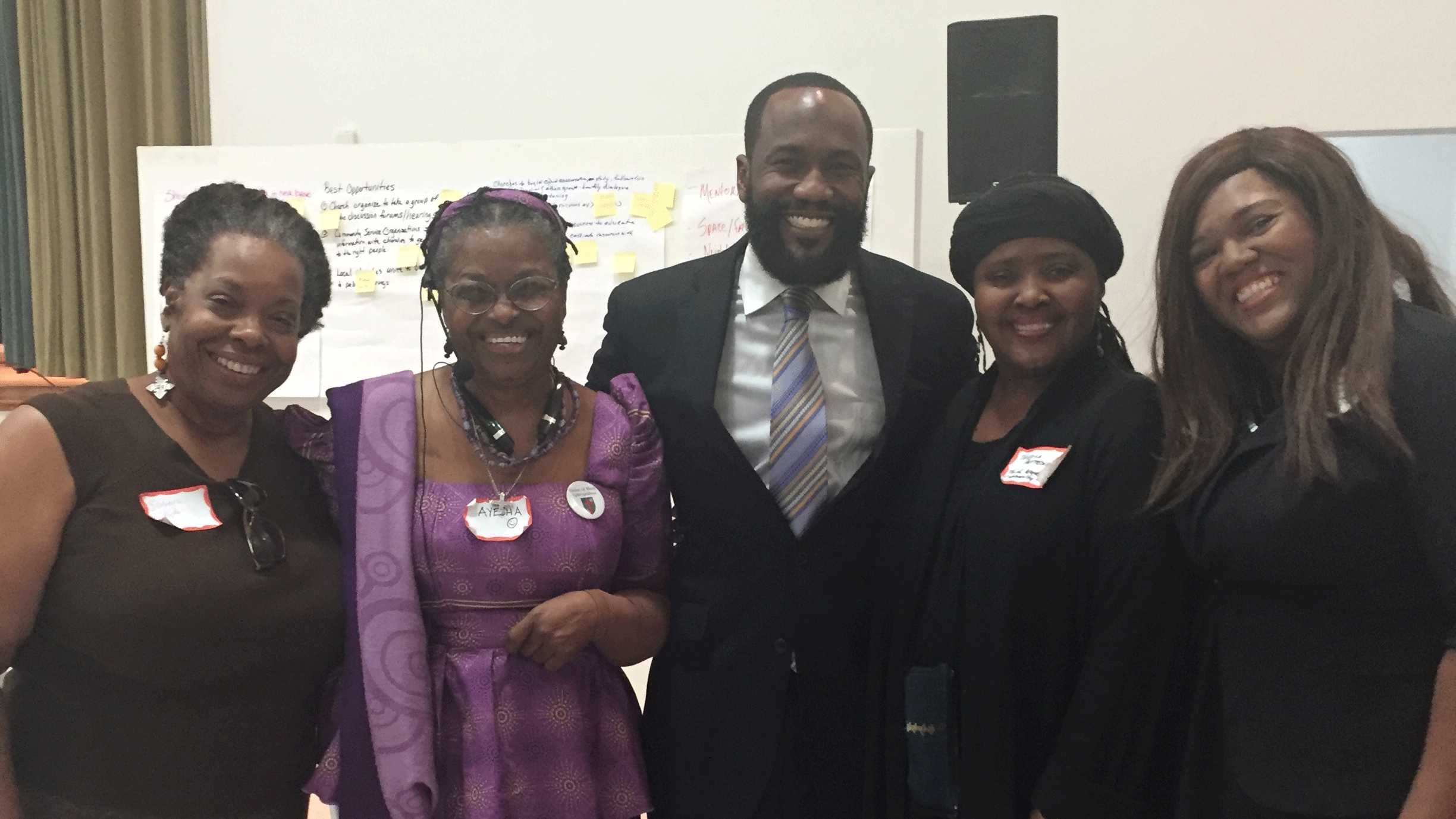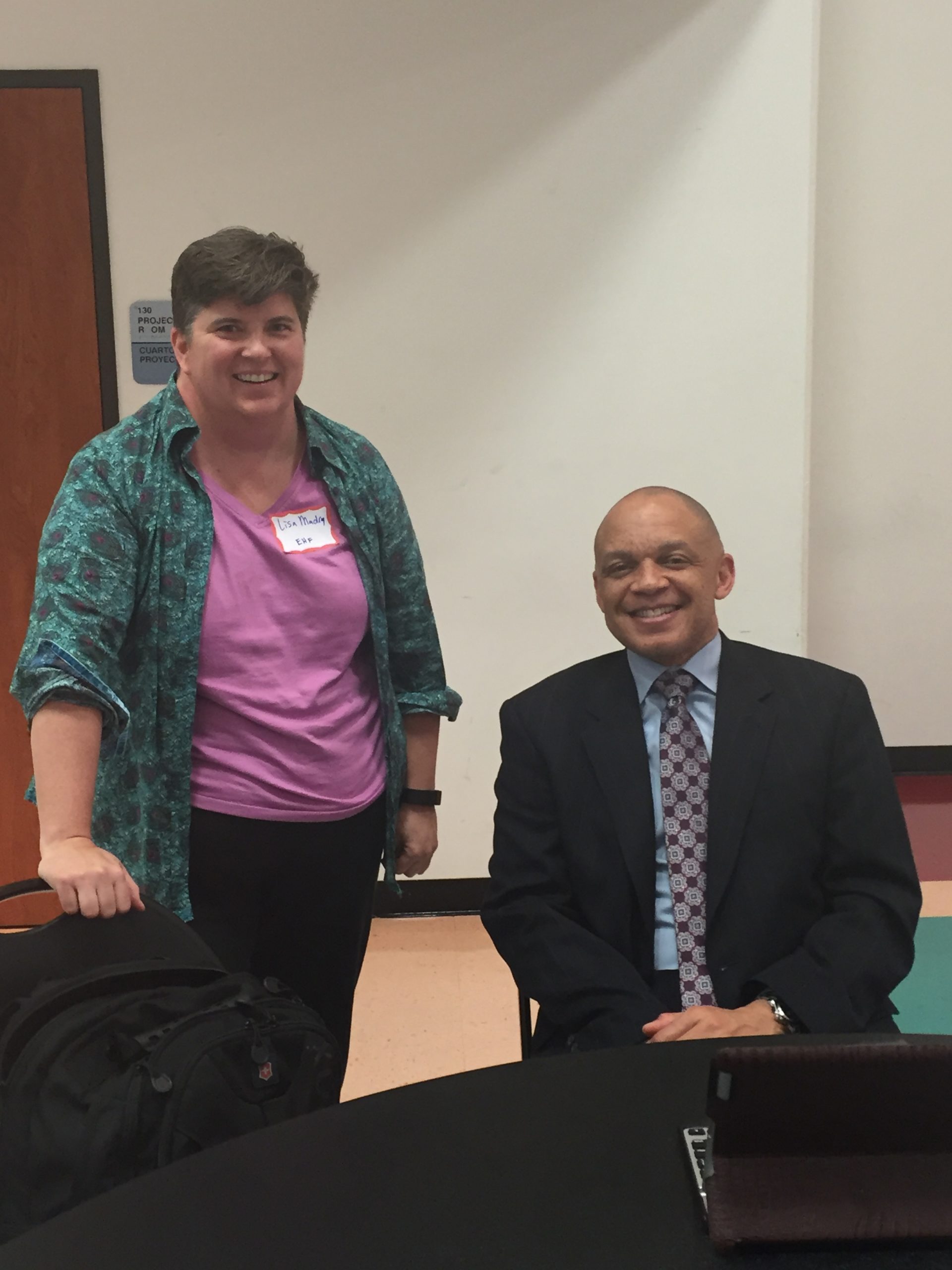
On Saturday, February 20, the Rev. John Dublin Epps Chapter of the Union of Black Episcopalians (UBE) hosted a social justice educational forum to kick off on-going efforts to address community needs in Houston and especially the Third Ward.
The event was held in honor of the first Black Episcopal Priest, Rev. Absalom Jones, who is celebrated annually on February 15. St. Luke the Evangelist Episcopal Church was also a co-sponsor of the forum. EHF supported the event as part of the UBE’s on-going efforts to expand their racial reconciliation and social justice work with Houston-area congregations.
The Union of Black Episcopalians encourages the involvement of African Americans in the Episcopal Church and has a 200-year tradition of “fighting racism, seeking social justice, and promoting diversity within the Church and the wider community.”
As a call to action in response to the shootings at Mother Emmanuel in Charleston, Sandra Bland’s death in Waller County, and recent events in Ferguson, Missouri, the purpose of the event was to examine the current condition of Houston neighborhoods, identify the community needs, and establish an action agenda for the next steps to bring about change in the community.
“The goal is to use the combined resources of churches and community organizations to bring about lasting sustainable change to develop, improve, and save our neighborhoods for the next generation,” said organizer Ayesha Mutope-Johnson, who is also a member of St. James’ Houston.
More than 40 people representing about 30 congregations, universities and community organizations came together to discuss social justice and the ways to create a healthy Houston, primarily in the Third Ward.
Episcopal churches included Christ Church Cathedral, St. John’s (La Porte), St. James’ (Houston), St. Timothy’s (Houston), St. Stephen’s (Houston) and St. Luke the Evangelist (Houston).
In the morning session, Chuck Wynder, Jr., Social Justice Missioner for the Episcopal Church USA (ECUSA), facilitated three panel discussions on racial justice, social justice and the church’s role in keeping the community healthy. The forum allowed panelists and audience members to openly discuss the current issues in the Houston’s Third-Ward community.
“Most of the Christian congregations, regardless of denomination, have been silent,” Wynder said. “So we know that if we go out in community, we will find hurt, anger, confusion and increased groaning about the concrete realities that impact those lives. Too many of us everyday, regardless of our racial background, fail to value the dignity of black minds, black souls and black bodies the same way we respect the minds, souls and bodies of other people.”
 EHF’s Lisa Madry and Chuck Wynder
EHF’s Lisa Madry and Chuck Wynder
EHF’s Lisa Madry and Theola Pettway of the OST/Almeda Redevelopment Authority facilitated the afternoon session. The session encouraged participants to discuss ways they can work with the other organizations present to further engage the community. As a close to the session, participants were able to identify which ideas and opportunities were of most interest to them moving forward, which included:
1) Creating open and healthy conversation, study, and fellowship between denominations and ethnic groups
2) Uniting local churches to organize groups that attend public forums and hearings
3) Using educational resources to educate community children and consolidate resources with other churches
The event closed with an inspiring Ecumenical Worship that included faith leaders from different denominations.
EHF, UBE, various congregations and community organizations in the Third Ward hope to continue to work together to identify best practices used in other communities and offer guidance in organizing future discussions on community engagement and racial reconciliation. EHF’s Congregational Engagement team is continually exploring ways to have critical conversations with communities about topics such as racial reconciliation, promoting multicultural awareness and inclusion.